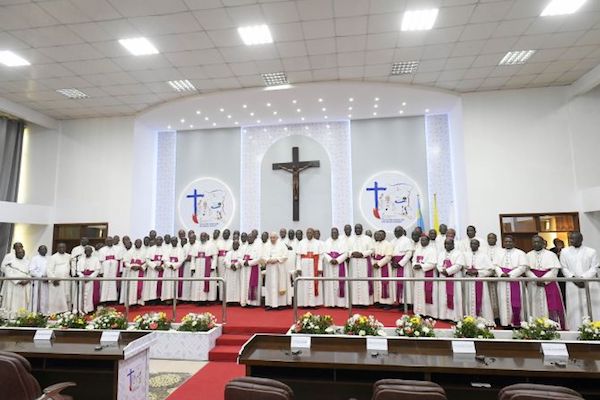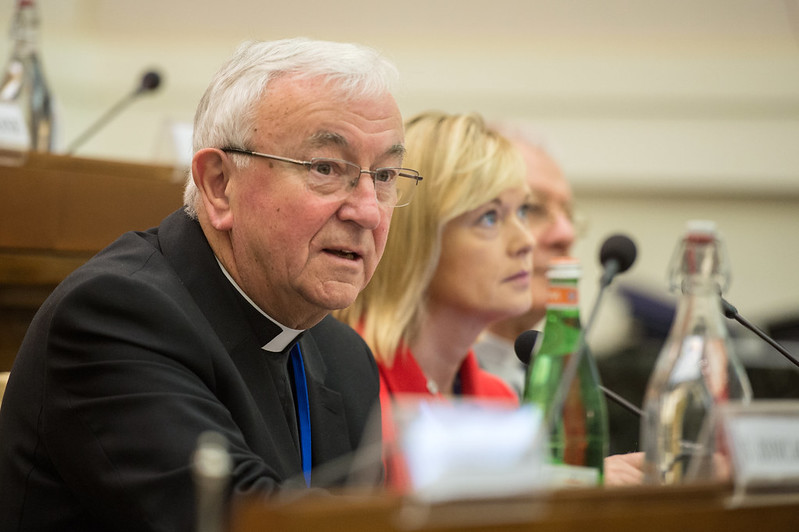The Santa Marta Group – the alliance of bishops and police chiefs initiated by Pope Francis to combat human trafficking – has urged governments and businesses around the world to step up their efforts to combat modern slavery by breaking supply chains and rejecting profits made on the back of exploitation. It is also calling on parishes to learn about it and help counter it.
The appeal came as Santa Marta launched a new six-point global strategy and a training project for parishes to help people spot and prevent slavery.
The launch, in Salford Cathedral on Wednesday, took place after a Mass celebrated by Bishop John Arnold to mark the feast of St Josephine Bakhita, the patron saint of victims of human trafficking. Also attending the launch was Kate Green, deputy mayor of Greater Manchester for policing and crime, Greater Manchester Police chief constable Stephen Watson and former chief constable Sir Peter Fahy who is also a trustee of Caritas Salford.
The Santa Marta Group was set up in 2014, inspired by Pope Francis. There has been considerable progress in partnerships between the Catholic Church and the police, with religious sisters providing safe spaces, education and training for victims of forced sex work and domestic servitude. But now, with the numbers of victims rising, the Santa Marta Group wants to go beyond fire-fighting, a spokesman said. “We need to stop the fires starting in the first place”, he said.
The six-point plan will focus on
- Encouraging government and businesses to combat trafficking via their purchasing, selling, and procurement
- Getting governments and business to build a consensus against tainted profits from trafficking and slavery.
- Urging better regulation of the internet to stop its use to help trafficking
- Updating the legal international framework on trafficking and slavery. Some of the conventions and statutes used date from 1926 and the League of Nations.
- Getting international bodies such as the United Nations and the World Health Organisation to be more pro-active in countering trafficking
- Persuading government and business to rethink how they deal with trafficking
Around 50 million people across the globe are the victims of trafficking and slavery – of which 70 per cent are women – with numbers increasing due to economic woes, climate change, disease such as Covid and government instability.
Bishop Arnold said: “Human trafficking is a scourge on our present times, but is real and all around us. It is the responsibility of every person to play their part in putting an end to this horrendous crime.”
He called on parishes and dioceses to help by using Santa Marta’s training materials, “to learn about it and to find solutions that are both possible and practical”.



 Loading ...
Loading ...